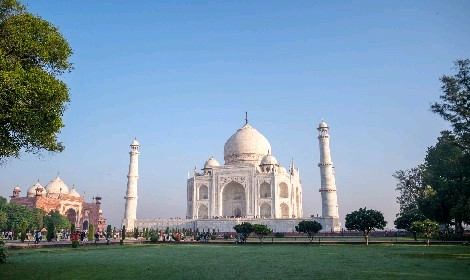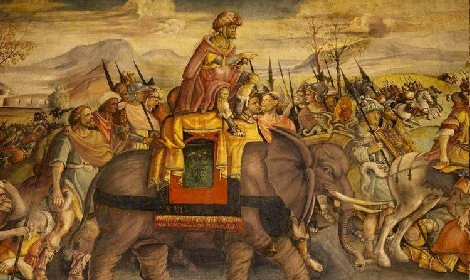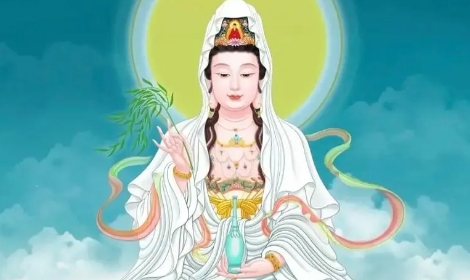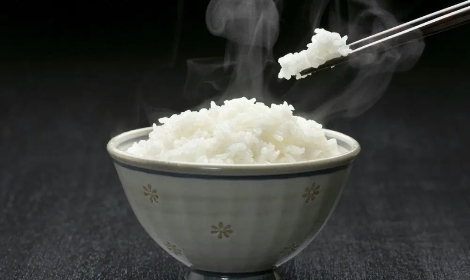为什么印度不能养活自己的人民?
正文翻译
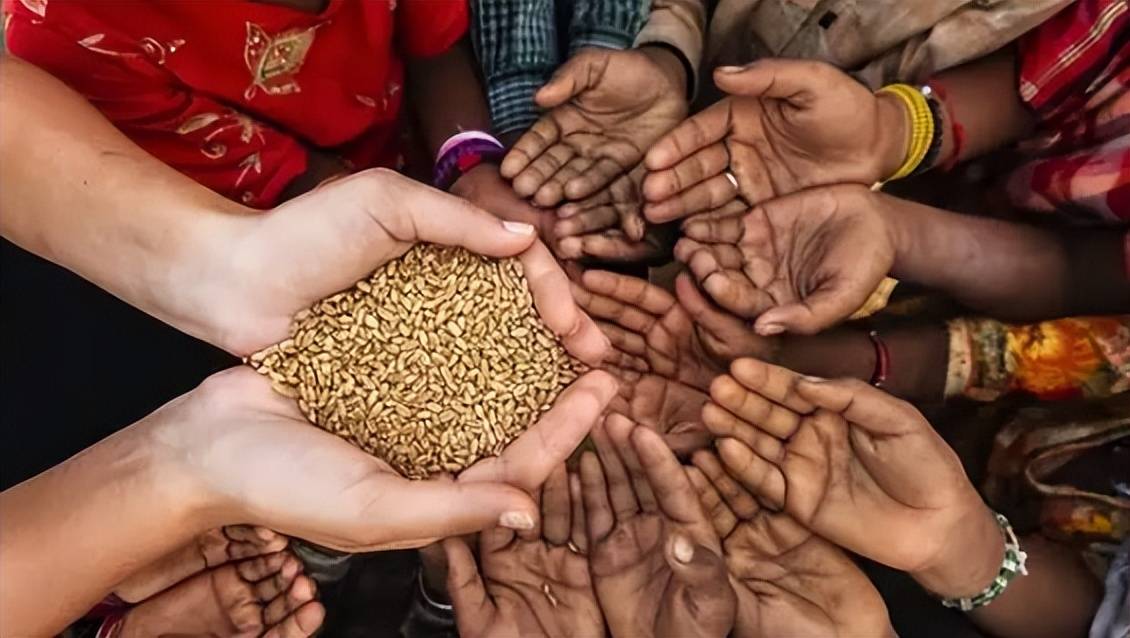
Why can't India feed its people?
为什么印度不能养活自己的人民?

Why can't India feed its people?
为什么印度不能养活自己的人民?
评论翻译
Vanita Ashar
Why can’t India feed its people? IMO, the following quote explains where the problem lies.
“The most startling aspect of the nutritional situation in India is that it is not much of an issue in public debates and electoral politics” - Jean Dreze, economist
I know it is not easy to understand the first time, but the hunger and poverty situation in our country has a lot to do with the policy failures, media corruption and no sense of ownership amongst the people who actually own the govt.
We Indians feel embarrassed at the thought of being called a socialist nation because we can’t explain the difference between a Socialist Nation and a Socialist Democracy.
statistics by UNWHO - 2006 explain the situation India is in.
There are 820 million chronically hungry people in the world and one third of the world’s hungry live in India.
为什么印度不能养活它的人民?在我看来,下面这段话解释了问题所在。
“印度营养状况最令人震惊的方面是,它在公共辩论和选举政治中并不是一个严重问题”——Jean Dreze(比利时裔印度经济学家)
我知道第一次读它并不容易理解它,但我国的饥饿和贫困状况与政策失败、媒体腐败以及真正执政的人没有主人翁意识有很大关系。
我们印度人一想到被称为社会主义国家就感到尴尬,因为我们无法解释社会主义国家和社会主义民主之间的区别。
联合国世界卫生组织2006年的统计数据解释了印度的现状。
世界上有8.2亿人处于长期饥饿状态,世界上三分之一的饥饿人口生活在印度。
That’s approx. 273million viz., 25% of 2006 population. And the same statistics also claim that 25 lakh Indians die of hunger every year. The number of hungry people in India is always more than people who come below the official poverty line.
Also, India (as on 2006) is estimated to have had approx. 212 million under nourished people viz. 3 million less than the figure of 1990-1991. The population has increased by a few 100 million people since 2006 and 30% of new borns were under weight.
So, where do we stand today?
‘The National Commission for Enterprises in the Unorganized Sector’ (estab. in 2004) reported that 836 million Indians (77% of our population) live on Rs. 20 a day or less.
The govt’s immediate reaction was to set up the committee with different people to get a new opinion. Three committees were set up and all of them came up with a figure for rural poverty which was much higher than the govt. estimate of 28%.
这大约是2.73亿,即2006年人口的25%。同样的统计数据也表明,每年有250万印度人死于饥饿。印度饥饿人口的数量总是超过官方贫困线以下的人口数量。
此外,据估计,印度(截至2006年)约有2.12亿营养不良人口,比1990-1991年的数字少300万。自2006年以来,人口增加了1亿人,30%的新生儿体重不足。
那么,我们今天的进展如何?
“国家无组织部门企业委员会”(2004年成立)报告称,8.36亿印度人(占我国人口的77%)每天的生活费不超过20卢比。
政府的第一反应是成立一个由不同人士组成的委员会,以获得新的意见。成立了三个委员会,所有委员会都提出了农村贫困的数字,远高于政府估计的28%。
I think anyone living in India today can easily imagine how 77% of this population would be living with just Rs. 20 a day to spend on everything they need, though the govt offers subsidized food through its PDS to the poor living BPL, 77% of the population was dependent on a corrupt PDS which again is meant to serve only 28% of the population. Now And yet, the govt with its growth oriented policies sets up committees upon committees till their estimated Poverty figure is achieved.
As P. Sainath, a rural reporter of the ‘Hindu’ had put it, “Hunger is defined not by how many people suffer it, but by how many the govt is willing to pay for”.
Finally a Food Bill is enacted into law in August 2013 which will provide subsidized food grains to approximately two thirds of India’s 1.2 billion people and Daily Free Meals for Pregnant Women and Lactating Mothers.
But how good is this bill? The govt has set aside a subsidy of Rupees 1.2 Trillion to feed a population of 800 million over a year. Each eligible person is entitled to 5kg of grains per month of Rice at Rupees 3 per kg, Wheat at Rupees 2 per kg and coarse grains like millets at Rupees 1 per kg.
The bill may be able to solve the hunger problem if implemented honestly but a further investment would be required to address the nutrient deficiencies of the population. It is not important to subsidize everything but decisions regarding agricultural policy will be important.
在印度,今天任何一个生活在那里的人都可以轻易想象,有77%的人口仅靠每天20卢比来支付他们所需的一切,尽管政府通过其公共分配系统(PDS)向生活在贫困线(BPL)以下的贫困人口提供补贴食品,但77%的人口却依赖于一个充满腐败的PDS,而这个系统本应只服务于28%的人口。现在,尽管如此,政府仍然以增长为导向的政策设立了一个又一个的委员会,直到他们达到预期的贫困人数。
正如《印度教徒报》的农村记者P. Sainath所说:“饥饿不是由受苦的人数来定义的,而是由政府愿意为多少人付费来定义的。”
2013年8月,一项食品法案最终成为法律,该法案将为印度12亿人口中的大约三分之二提供补贴粮食,并为孕妇和哺乳母亲提供免费的日常餐。
但这项法案有多好呢?政府已经拨出1.2万亿卢比的补贴,用于在一年内养活8亿人口。每个符合条件的人每月有权获得5公斤粮食,大米每公斤3卢比,小麦每公斤2卢比,像小米这样的粗粮每公斤1卢比。
如果诚实地实施,这项法案可能能够解决饥饿问题,但需要进一步投资来解决人口的营养不足问题。重要的不是补贴一切,而是关于农业政策的决策将非常重要。
A lot of people argue on the political motives of the bill and the ills of the socialist approach to governance that this situation demands but a few people are willing to discuss this in public and accept that Subsidies, Progressive Taxation and Redistribution of Wealth and Income are indeed the only (short-term) solutions for this problem as of now.
And what are the opposition parties willing to offer to counter this? Complete abolishment of Taxes replaced by transaction taxes. And our newly formed middle class gets excited at the thought of no taxes, blaming subsidies for all the problems in the society and economy.
And what do we attribute this ignorance of the government and middle class to? Has nobody ever wondered why the govt would have to pass such a food bill, why the actual BPL population more than tripled?
We are too busy working to make India a Superpower, we feel proud when we see 49 Indians listed as Dollar Billionaires on Forbes.com, we need first class retail in our country, we need the FDI that will create Jobs for the Urban sector and Modernize India’s Infrastructure, put it on the world map with the developed nations.
We want our currency to be closer to the dollar rate so we can buy oil cheaper and import technologies at a lower price while we spend our money to develop an export oriented industry.
很多人争论这个法案背后的政治动机,以及社会主义治理方式所带来的问题,这种情况需要解决,但很少有人愿意公开讨论并接受补贴、累进税制和财富及收入再分配确实是目前解决这个问题的唯一(短期)办法。
那么反对党派愿意提供什么来对抗这一点呢?完全废除税收,改为交易税。而我们新形成的中产阶级一想到不征税就兴奋起来,将所有的社会和经济问题归咎于补贴。
我们将政府和中产阶级的这种无知归咎于什么?难道没有人曾经想过为什么政府必须通过这样的食品法案,为什么实际的贫困线以下人口增加了三倍多?
我们忙于让印度成为一个超级大国,当我们看到福布斯网站上有49名印度人被列为美元亿万富翁时,我们感到自豪,我们需要在我们的国家拥有一流的零售业,我们需要外国直接投资来为城市部门创造就业机会和现代化印度的基础设施,让印度与发达国家一起登上世界地图。
我们希望我们的货币汇率更接近美元,这样我们可以更便宜地购买石油,以更低的价格进口技术,同时我们花钱发展面向出口的产业。
We feel proud when Congress boasts a 8% growth in the economy and when Narendra Modi boasts of a 10% growth in the Agricultural Sector by shifting Land for Food Grains to Cash Crops. We also feel proud when Mukesh Ambani praises Modi for turning a sleepy town of Gujarat into Asia’s Biggest Auto Hub. But never bother to question the reports of Lands given away for almost free to Tatas and Adanis. We don’t want to discuss the inconsistencies of the SIT that gave a clean chit to Modi for the Gujarat Riots.
I am not against growth and developments but how many of us understand what this speedy growth has cost the nation? We blame the new entrant politician Kejriwal of being in a hurry when he tries to fix the Water and Electricity Problems in Delhi with subsidies worth 200Crores and accuse him of violating the Constitution when he tries to pass a bill for Corruption Laws in just 49days but we forget about questioning the experienced governments on the fast growth rates they are achieving by write-offs worth 500,000 crores for the Super Rich and the Corporate Sector.
当国大党吹嘘经济增长8%时,当纳伦德拉·莫迪吹嘘农业部门通过将粮食作物转为经济作物而实现10%的增长时,我们感到自豪。当穆克什·安巴尼赞扬莫迪将古吉拉特的一个沉睡小镇变成了亚洲最大的汽车中心时,我们也感到骄傲。但我们从不质疑将土地几乎免费给予塔塔和阿达尼集团的报告。我们不想讨论特别调查团队对莫迪在古吉拉特骚乱中的清白裁决的不一致性。
我不反对增长和发展,但我们中有多少人理解这种快速增长给国家带来了什么代价?当新进政治家凯杰里瓦尔试图用价值20亿卢比的补贴解决德里的水电问题时,我们指责他急功近利,并在他试图在短短49天内通过反腐败法案时指责他违反宪法,但我们却忘记了质疑那些经验丰富的政府通过为超级富豪和企业部门减免价值50万卢比的债务而实现的快速增长率。
I will again emphasize, I do not oppose growth but do we need to be moving so fast? What are we targeting to achieve by giving so many incentives to the private sector and losing so much money for attracting investment and FDI when we are ourselves one of the biggest consumer markets in which 77% of us live below the poverty line.
The govt has approved for over 500 Special Economic Zones in one country when there aren’t that many in the whole world combined.
And So many Laws of the constitution have been violated to facilitate these projects. Forcefully grabbing the Fertile Multi Crop Lands of Farmers to develop Special Economic Zones which will set up Technology Incentive Export Industries and displace the Labour Intensive Cottage Industries and Farms.
我再次强调,我不反对增长,但我们真的需要这么快吗?通过给予私营部门如此多的激励措施,吸引投资和外国直接投资而损失如此多的资金,我们究竟在追求什么目标,而我们自己就是最大的消费市场之一,其中77%的人生活在贫困线以下。
政府已经批准在一个国家内建立超过500个特殊经济区,这比全世界加起来还要多。
为了促进这些项目,已经违反了许多宪法法律。强行夺取农民的肥沃的多作物土地,以发展特殊经济区,建立技术激励出口产业,并将劳动密集型的家庭手工业和农场挤走。
We also don’t care that atleast 10lakh people have been displaced and lost their livelyhoods so that a few rich men can create profitable industries that employ a some 1lakh odd workers.
Atleast 1.67 billion was lost on Custom Duty exemptions for the Super Rich who operate businesses in the Special Economic Zones while the govts earn a foreign exchange of 1.04 billion from these SEZ. And the govt does not have enough money to support a Food Bill that will create Universal Prices for all Indians and feed Malnourished Children.
While the corporate owned Media continues to celebrate measures like the Fuel Price Decontrol and justify hikes in gas prices, they never says a word about the rapid Inflation or Rising Inequality that is leading to Social Crimes like Rape, Naxalism, Bribery and Corruption at all levels of the Society.
What are we trying to achieve by all this, Jobs in the Export Sector that depend on the Speculation driven Global Demand?
我们也不在乎至少有100万人流离失所,失去了生计,这样一些富人就可以创造出雇佣大约10多万工人的有利可图的行业。
在经济特区经营业务的超级富豪的关税豁免至少损失了16.7亿美元,而政府从这些经济特区赚取了10.4亿美元的外汇。政府没有足够的钱来支持食品法案,为所有印度人制定统一价格,养活营养不良的儿童。
而企业控制的媒体继续庆祝诸如解除燃料价格管制之类的措施,并为汽油价格的上涨辩护时,他们对快速的通货膨胀或日益加剧的不平等问题却一言不发,这些问题导致了社会各级的强奸、Naxal运动、贿赂和腐败等社会犯罪。
我们这么做的目的是什么,依赖于由投机驱动的全球需求的出口部门的工作岗位吗?
The truth is India cannot feed its people today because we are busy implementing a Growth Agenda focused on Economic Efficiency that leads to Intellectual Deficiency.
India cannot feed its people today because it doesn’t want to invest in its people, it wants to invest in infrastructure that comes at the cost of unemployment.
India cannot feed its people today because it is unable to introduce a Progressive Tax on the incomes of the Super Rich because we need more billionaires.
India cannot feed its people because it can’t stop giving tax concessions and freebies to the Super Rich so they can control the market.
India cannot feed its people because India wants its citizens to be Multi-national employees instead of self-employers.
事实是,印度今天无法养活自己的人民,因为我们正忙于实施以经济效率为重点的增长议程,这导致了智力的缺乏。
印度无法养活自己的人民,因为它不想投资于人民,它想投资于基础设施,而基础设施的建设是以失业为代价的。
印度今天无法养活自己的人民,因为它无法对超级富豪的收入征收累进税,因为我们需要更多的亿万富翁。
印度无法养活自己的人民,因为它不停地向超级富豪提供税收优惠和免费赠品,这样他们就能控制市场。
印度无法养活自己的人民,因为印度希望自己的公民成为跨国公司的雇员,而不是自主创业。
India cannot feed itself because there are smart economists like Mr. Jagdish Bhagwati who consider 2.5 lakh farmer suicides to be an insignificant number. India cannot feed its people because India wants to compete with the west, we don’t want to become another socialist country and be laughed upon for giving freebies to our poor.
India cannot feed its people because it wants to be the envy of its neighbors, not one like them.
And last but not the least
India cannot feed its people because there are so many other things to do and 5 years is too short a time to think about sowing seeds for long term developments that may go unnoticed by the voter.
印度无法自给自足,因为有像贾格迪什·巴格瓦蒂这样的聪明经济学家认为25万农民自杀是一个微不足道的数字。印度无法养活自己的人民,因为印度想与西方竞争,我们不想成为另一个社会主义国家,不想因为给穷人免费而被嘲笑。
印度无法养活自己的人民,因为它想成为邻国的羡慕对象,而不是成为像他们一样的国家。
最后但同样重要的是,
印度无法养活自己的人民,因为有太多其他事情要做,5年的时间太短了,不能考虑为可能被选民忽视的长期发展播下种子。
Joe Geronimo Martinez
I have relatives who have also known starvation and it is a completely different outlook on life. Even those who haven't known shortages for about 50 years still hoard tea and ask if they can take stuff home they don't really need: stuff like rice or bread.
One thing the article didn't mention is the nature of agriculture: it is much less predictable than life in the city. When the harvest comes in you have a diet of plenty for a few short months. The rest of the time it is scraping by, although my family were coastal, so fish was plentiful and sea food like cockles. If it rained you could harvest the snails.
These were very self reliant people and not those used to complaining. What struck me was they just didn't have any expectations of help. So wouldn't campaign for it. On the other side of my family (urban dockers and railway workers) they would riot and strike much more quickly.
It means the rural poor are often just ignored. They are not going to complain.
The big problem is never how much: it is how it is divided. Capitalism breaks down when people are starving.
我有亲戚也曾经历过饥饿,这完全是对生活不同的看法。即使是那些大约50年来没有经历过物资短缺的人,仍然会囤积茶叶,并询问是否可以带走他们其实并不真正需要的东西:像大米或面包之类的东西。
文章没有提到的一件事是农业的性质:它比城市生活要不可预测得多。当收成到来时,你有几个月的充足饮食。其余时间则是勉强维持生计,不过我的家人住在沿海地区,所以鱼很丰富,如蛤蜊之类海鲜很多。如果下雨,你可以收获蜗牛。
这些人自力更生,不习惯于抱怨。令我震惊的是,他们对帮助没有任何期望。所以我不会去争取。我家族的另一边亲戚(城市码头工人和铁路工人),他们会以更快的速度暴动和罢工。
这意味着农村贫困人口经常被忽视,不过他们不会抱怨。
大问题从来不是有多少:而是如何分配。当人们挨饿时,资本主义就会崩溃。
India has too many people in rural communities.
Corruption has always been a big problem in India. It is one of those things that always thrive where there are inequalities of wealth. It is possible to starve in the midst of plenty if you are poor.
Corruption does have to be tackled, but changing the faces won't work: the system has to change. Even more important people have to stop working with it and working against it.
The caste system isn't going to go away: it is part of the system. It has had millenia to become entrenched.
I don't really think it is even the fault of the politicians: corrupt politicians exist because people allow them too. The answer is to stop accepting the system an inequality. Elect people who are going to present real change, not those who claim a common religion or ethnicity.
the politicians must sort out the problems or make way for people who can.
印度的农村人口太多人了。
腐败一直是印度的一个重大问题。这是那些财富不平等的地方总是滋生腐败的事情之一。如果你贫穷,在富足之地也是可能挨饿的。
必须解决腐败问题,但仅仅改变面孔是行不通的:系统必须改变。更重要的是,人们必须停止与之合作,开始反对它。
种姓制度不会消失:它是系统的一部分。它在几千年的时间里变得根深蒂固。
我并不真的认为这是政治家们的错:腐败的政治家存在是因为人们允许他们存在。解决办法是停止接受不平等的系统。要选出那些将带来真正变革的人,而不是那些声称有共同宗教或种族的人。
政治家们必须解决问题,或者让位给能够解决问题的人。
Why can’t India feed its people? IMO, the following quote explains where the problem lies.
“The most startling aspect of the nutritional situation in India is that it is not much of an issue in public debates and electoral politics” - Jean Dreze, economist
I know it is not easy to understand the first time, but the hunger and poverty situation in our country has a lot to do with the policy failures, media corruption and no sense of ownership amongst the people who actually own the govt.
We Indians feel embarrassed at the thought of being called a socialist nation because we can’t explain the difference between a Socialist Nation and a Socialist Democracy.
statistics by UNWHO - 2006 explain the situation India is in.
There are 820 million chronically hungry people in the world and one third of the world’s hungry live in India.
为什么印度不能养活它的人民?在我看来,下面这段话解释了问题所在。
“印度营养状况最令人震惊的方面是,它在公共辩论和选举政治中并不是一个严重问题”——Jean Dreze(比利时裔印度经济学家)
我知道第一次读它并不容易理解它,但我国的饥饿和贫困状况与政策失败、媒体腐败以及真正执政的人没有主人翁意识有很大关系。
我们印度人一想到被称为社会主义国家就感到尴尬,因为我们无法解释社会主义国家和社会主义民主之间的区别。
联合国世界卫生组织2006年的统计数据解释了印度的现状。
世界上有8.2亿人处于长期饥饿状态,世界上三分之一的饥饿人口生活在印度。
That’s approx. 273million viz., 25% of 2006 population. And the same statistics also claim that 25 lakh Indians die of hunger every year. The number of hungry people in India is always more than people who come below the official poverty line.
Also, India (as on 2006) is estimated to have had approx. 212 million under nourished people viz. 3 million less than the figure of 1990-1991. The population has increased by a few 100 million people since 2006 and 30% of new borns were under weight.
So, where do we stand today?
‘The National Commission for Enterprises in the Unorganized Sector’ (estab. in 2004) reported that 836 million Indians (77% of our population) live on Rs. 20 a day or less.
The govt’s immediate reaction was to set up the committee with different people to get a new opinion. Three committees were set up and all of them came up with a figure for rural poverty which was much higher than the govt. estimate of 28%.
这大约是2.73亿,即2006年人口的25%。同样的统计数据也表明,每年有250万印度人死于饥饿。印度饥饿人口的数量总是超过官方贫困线以下的人口数量。
此外,据估计,印度(截至2006年)约有2.12亿营养不良人口,比1990-1991年的数字少300万。自2006年以来,人口增加了1亿人,30%的新生儿体重不足。
那么,我们今天的进展如何?
“国家无组织部门企业委员会”(2004年成立)报告称,8.36亿印度人(占我国人口的77%)每天的生活费不超过20卢比。
政府的第一反应是成立一个由不同人士组成的委员会,以获得新的意见。成立了三个委员会,所有委员会都提出了农村贫困的数字,远高于政府估计的28%。
I think anyone living in India today can easily imagine how 77% of this population would be living with just Rs. 20 a day to spend on everything they need, though the govt offers subsidized food through its PDS to the poor living BPL, 77% of the population was dependent on a corrupt PDS which again is meant to serve only 28% of the population. Now And yet, the govt with its growth oriented policies sets up committees upon committees till their estimated Poverty figure is achieved.
As P. Sainath, a rural reporter of the ‘Hindu’ had put it, “Hunger is defined not by how many people suffer it, but by how many the govt is willing to pay for”.
Finally a Food Bill is enacted into law in August 2013 which will provide subsidized food grains to approximately two thirds of India’s 1.2 billion people and Daily Free Meals for Pregnant Women and Lactating Mothers.
But how good is this bill? The govt has set aside a subsidy of Rupees 1.2 Trillion to feed a population of 800 million over a year. Each eligible person is entitled to 5kg of grains per month of Rice at Rupees 3 per kg, Wheat at Rupees 2 per kg and coarse grains like millets at Rupees 1 per kg.
The bill may be able to solve the hunger problem if implemented honestly but a further investment would be required to address the nutrient deficiencies of the population. It is not important to subsidize everything but decisions regarding agricultural policy will be important.
在印度,今天任何一个生活在那里的人都可以轻易想象,有77%的人口仅靠每天20卢比来支付他们所需的一切,尽管政府通过其公共分配系统(PDS)向生活在贫困线(BPL)以下的贫困人口提供补贴食品,但77%的人口却依赖于一个充满腐败的PDS,而这个系统本应只服务于28%的人口。现在,尽管如此,政府仍然以增长为导向的政策设立了一个又一个的委员会,直到他们达到预期的贫困人数。
正如《印度教徒报》的农村记者P. Sainath所说:“饥饿不是由受苦的人数来定义的,而是由政府愿意为多少人付费来定义的。”
2013年8月,一项食品法案最终成为法律,该法案将为印度12亿人口中的大约三分之二提供补贴粮食,并为孕妇和哺乳母亲提供免费的日常餐。
但这项法案有多好呢?政府已经拨出1.2万亿卢比的补贴,用于在一年内养活8亿人口。每个符合条件的人每月有权获得5公斤粮食,大米每公斤3卢比,小麦每公斤2卢比,像小米这样的粗粮每公斤1卢比。
如果诚实地实施,这项法案可能能够解决饥饿问题,但需要进一步投资来解决人口的营养不足问题。重要的不是补贴一切,而是关于农业政策的决策将非常重要。
A lot of people argue on the political motives of the bill and the ills of the socialist approach to governance that this situation demands but a few people are willing to discuss this in public and accept that Subsidies, Progressive Taxation and Redistribution of Wealth and Income are indeed the only (short-term) solutions for this problem as of now.
And what are the opposition parties willing to offer to counter this? Complete abolishment of Taxes replaced by transaction taxes. And our newly formed middle class gets excited at the thought of no taxes, blaming subsidies for all the problems in the society and economy.
And what do we attribute this ignorance of the government and middle class to? Has nobody ever wondered why the govt would have to pass such a food bill, why the actual BPL population more than tripled?
We are too busy working to make India a Superpower, we feel proud when we see 49 Indians listed as Dollar Billionaires on Forbes.com, we need first class retail in our country, we need the FDI that will create Jobs for the Urban sector and Modernize India’s Infrastructure, put it on the world map with the developed nations.
We want our currency to be closer to the dollar rate so we can buy oil cheaper and import technologies at a lower price while we spend our money to develop an export oriented industry.
很多人争论这个法案背后的政治动机,以及社会主义治理方式所带来的问题,这种情况需要解决,但很少有人愿意公开讨论并接受补贴、累进税制和财富及收入再分配确实是目前解决这个问题的唯一(短期)办法。
那么反对党派愿意提供什么来对抗这一点呢?完全废除税收,改为交易税。而我们新形成的中产阶级一想到不征税就兴奋起来,将所有的社会和经济问题归咎于补贴。
我们将政府和中产阶级的这种无知归咎于什么?难道没有人曾经想过为什么政府必须通过这样的食品法案,为什么实际的贫困线以下人口增加了三倍多?
我们忙于让印度成为一个超级大国,当我们看到福布斯网站上有49名印度人被列为美元亿万富翁时,我们感到自豪,我们需要在我们的国家拥有一流的零售业,我们需要外国直接投资来为城市部门创造就业机会和现代化印度的基础设施,让印度与发达国家一起登上世界地图。
我们希望我们的货币汇率更接近美元,这样我们可以更便宜地购买石油,以更低的价格进口技术,同时我们花钱发展面向出口的产业。
We feel proud when Congress boasts a 8% growth in the economy and when Narendra Modi boasts of a 10% growth in the Agricultural Sector by shifting Land for Food Grains to Cash Crops. We also feel proud when Mukesh Ambani praises Modi for turning a sleepy town of Gujarat into Asia’s Biggest Auto Hub. But never bother to question the reports of Lands given away for almost free to Tatas and Adanis. We don’t want to discuss the inconsistencies of the SIT that gave a clean chit to Modi for the Gujarat Riots.
I am not against growth and developments but how many of us understand what this speedy growth has cost the nation? We blame the new entrant politician Kejriwal of being in a hurry when he tries to fix the Water and Electricity Problems in Delhi with subsidies worth 200Crores and accuse him of violating the Constitution when he tries to pass a bill for Corruption Laws in just 49days but we forget about questioning the experienced governments on the fast growth rates they are achieving by write-offs worth 500,000 crores for the Super Rich and the Corporate Sector.
当国大党吹嘘经济增长8%时,当纳伦德拉·莫迪吹嘘农业部门通过将粮食作物转为经济作物而实现10%的增长时,我们感到自豪。当穆克什·安巴尼赞扬莫迪将古吉拉特的一个沉睡小镇变成了亚洲最大的汽车中心时,我们也感到骄傲。但我们从不质疑将土地几乎免费给予塔塔和阿达尼集团的报告。我们不想讨论特别调查团队对莫迪在古吉拉特骚乱中的清白裁决的不一致性。
我不反对增长和发展,但我们中有多少人理解这种快速增长给国家带来了什么代价?当新进政治家凯杰里瓦尔试图用价值20亿卢比的补贴解决德里的水电问题时,我们指责他急功近利,并在他试图在短短49天内通过反腐败法案时指责他违反宪法,但我们却忘记了质疑那些经验丰富的政府通过为超级富豪和企业部门减免价值50万卢比的债务而实现的快速增长率。
I will again emphasize, I do not oppose growth but do we need to be moving so fast? What are we targeting to achieve by giving so many incentives to the private sector and losing so much money for attracting investment and FDI when we are ourselves one of the biggest consumer markets in which 77% of us live below the poverty line.
The govt has approved for over 500 Special Economic Zones in one country when there aren’t that many in the whole world combined.
And So many Laws of the constitution have been violated to facilitate these projects. Forcefully grabbing the Fertile Multi Crop Lands of Farmers to develop Special Economic Zones which will set up Technology Incentive Export Industries and displace the Labour Intensive Cottage Industries and Farms.
我再次强调,我不反对增长,但我们真的需要这么快吗?通过给予私营部门如此多的激励措施,吸引投资和外国直接投资而损失如此多的资金,我们究竟在追求什么目标,而我们自己就是最大的消费市场之一,其中77%的人生活在贫困线以下。
政府已经批准在一个国家内建立超过500个特殊经济区,这比全世界加起来还要多。
为了促进这些项目,已经违反了许多宪法法律。强行夺取农民的肥沃的多作物土地,以发展特殊经济区,建立技术激励出口产业,并将劳动密集型的家庭手工业和农场挤走。
We also don’t care that atleast 10lakh people have been displaced and lost their livelyhoods so that a few rich men can create profitable industries that employ a some 1lakh odd workers.
Atleast 1.67 billion was lost on Custom Duty exemptions for the Super Rich who operate businesses in the Special Economic Zones while the govts earn a foreign exchange of 1.04 billion from these SEZ. And the govt does not have enough money to support a Food Bill that will create Universal Prices for all Indians and feed Malnourished Children.
While the corporate owned Media continues to celebrate measures like the Fuel Price Decontrol and justify hikes in gas prices, they never says a word about the rapid Inflation or Rising Inequality that is leading to Social Crimes like Rape, Naxalism, Bribery and Corruption at all levels of the Society.
What are we trying to achieve by all this, Jobs in the Export Sector that depend on the Speculation driven Global Demand?
我们也不在乎至少有100万人流离失所,失去了生计,这样一些富人就可以创造出雇佣大约10多万工人的有利可图的行业。
在经济特区经营业务的超级富豪的关税豁免至少损失了16.7亿美元,而政府从这些经济特区赚取了10.4亿美元的外汇。政府没有足够的钱来支持食品法案,为所有印度人制定统一价格,养活营养不良的儿童。
而企业控制的媒体继续庆祝诸如解除燃料价格管制之类的措施,并为汽油价格的上涨辩护时,他们对快速的通货膨胀或日益加剧的不平等问题却一言不发,这些问题导致了社会各级的强奸、Naxal运动、贿赂和腐败等社会犯罪。
我们这么做的目的是什么,依赖于由投机驱动的全球需求的出口部门的工作岗位吗?
The truth is India cannot feed its people today because we are busy implementing a Growth Agenda focused on Economic Efficiency that leads to Intellectual Deficiency.
India cannot feed its people today because it doesn’t want to invest in its people, it wants to invest in infrastructure that comes at the cost of unemployment.
India cannot feed its people today because it is unable to introduce a Progressive Tax on the incomes of the Super Rich because we need more billionaires.
India cannot feed its people because it can’t stop giving tax concessions and freebies to the Super Rich so they can control the market.
India cannot feed its people because India wants its citizens to be Multi-national employees instead of self-employers.
事实是,印度今天无法养活自己的人民,因为我们正忙于实施以经济效率为重点的增长议程,这导致了智力的缺乏。
印度无法养活自己的人民,因为它不想投资于人民,它想投资于基础设施,而基础设施的建设是以失业为代价的。
印度今天无法养活自己的人民,因为它无法对超级富豪的收入征收累进税,因为我们需要更多的亿万富翁。
印度无法养活自己的人民,因为它不停地向超级富豪提供税收优惠和免费赠品,这样他们就能控制市场。
印度无法养活自己的人民,因为印度希望自己的公民成为跨国公司的雇员,而不是自主创业。
India cannot feed itself because there are smart economists like Mr. Jagdish Bhagwati who consider 2.5 lakh farmer suicides to be an insignificant number. India cannot feed its people because India wants to compete with the west, we don’t want to become another socialist country and be laughed upon for giving freebies to our poor.
India cannot feed its people because it wants to be the envy of its neighbors, not one like them.
And last but not the least
India cannot feed its people because there are so many other things to do and 5 years is too short a time to think about sowing seeds for long term developments that may go unnoticed by the voter.
印度无法自给自足,因为有像贾格迪什·巴格瓦蒂这样的聪明经济学家认为25万农民自杀是一个微不足道的数字。印度无法养活自己的人民,因为印度想与西方竞争,我们不想成为另一个社会主义国家,不想因为给穷人免费而被嘲笑。
印度无法养活自己的人民,因为它想成为邻国的羡慕对象,而不是成为像他们一样的国家。
最后但同样重要的是,
印度无法养活自己的人民,因为有太多其他事情要做,5年的时间太短了,不能考虑为可能被选民忽视的长期发展播下种子。
Joe Geronimo Martinez
I have relatives who have also known starvation and it is a completely different outlook on life. Even those who haven't known shortages for about 50 years still hoard tea and ask if they can take stuff home they don't really need: stuff like rice or bread.
One thing the article didn't mention is the nature of agriculture: it is much less predictable than life in the city. When the harvest comes in you have a diet of plenty for a few short months. The rest of the time it is scraping by, although my family were coastal, so fish was plentiful and sea food like cockles. If it rained you could harvest the snails.
These were very self reliant people and not those used to complaining. What struck me was they just didn't have any expectations of help. So wouldn't campaign for it. On the other side of my family (urban dockers and railway workers) they would riot and strike much more quickly.
It means the rural poor are often just ignored. They are not going to complain.
The big problem is never how much: it is how it is divided. Capitalism breaks down when people are starving.
我有亲戚也曾经历过饥饿,这完全是对生活不同的看法。即使是那些大约50年来没有经历过物资短缺的人,仍然会囤积茶叶,并询问是否可以带走他们其实并不真正需要的东西:像大米或面包之类的东西。
文章没有提到的一件事是农业的性质:它比城市生活要不可预测得多。当收成到来时,你有几个月的充足饮食。其余时间则是勉强维持生计,不过我的家人住在沿海地区,所以鱼很丰富,如蛤蜊之类海鲜很多。如果下雨,你可以收获蜗牛。
这些人自力更生,不习惯于抱怨。令我震惊的是,他们对帮助没有任何期望。所以我不会去争取。我家族的另一边亲戚(城市码头工人和铁路工人),他们会以更快的速度暴动和罢工。
这意味着农村贫困人口经常被忽视,不过他们不会抱怨。
大问题从来不是有多少:而是如何分配。当人们挨饿时,资本主义就会崩溃。
India has too many people in rural communities.
Corruption has always been a big problem in India. It is one of those things that always thrive where there are inequalities of wealth. It is possible to starve in the midst of plenty if you are poor.
Corruption does have to be tackled, but changing the faces won't work: the system has to change. Even more important people have to stop working with it and working against it.
The caste system isn't going to go away: it is part of the system. It has had millenia to become entrenched.
I don't really think it is even the fault of the politicians: corrupt politicians exist because people allow them too. The answer is to stop accepting the system an inequality. Elect people who are going to present real change, not those who claim a common religion or ethnicity.
the politicians must sort out the problems or make way for people who can.
印度的农村人口太多人了。
腐败一直是印度的一个重大问题。这是那些财富不平等的地方总是滋生腐败的事情之一。如果你贫穷,在富足之地也是可能挨饿的。
必须解决腐败问题,但仅仅改变面孔是行不通的:系统必须改变。更重要的是,人们必须停止与之合作,开始反对它。
种姓制度不会消失:它是系统的一部分。它在几千年的时间里变得根深蒂固。
我并不真的认为这是政治家们的错:腐败的政治家存在是因为人们允许他们存在。解决办法是停止接受不平等的系统。要选出那些将带来真正变革的人,而不是那些声称有共同宗教或种族的人。
政治家们必须解决问题,或者让位给能够解决问题的人。





